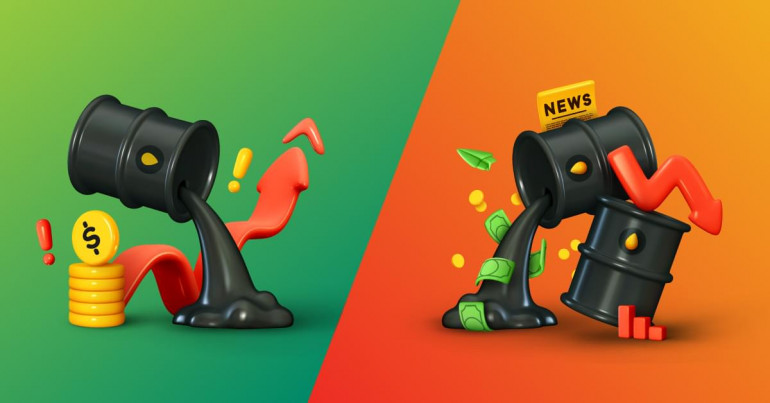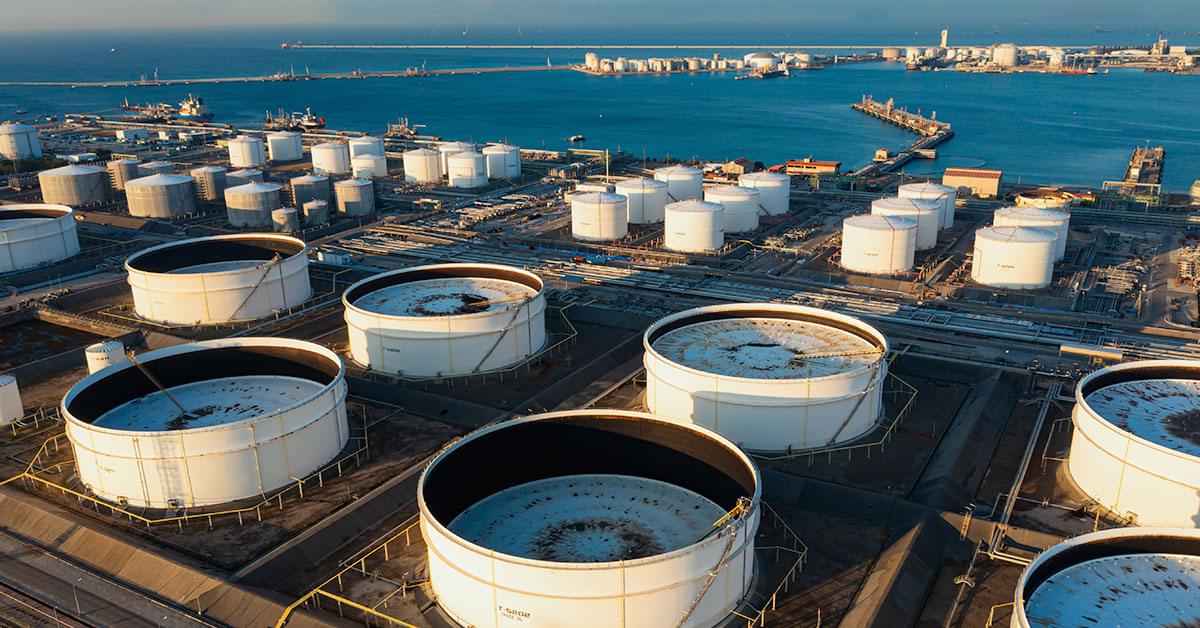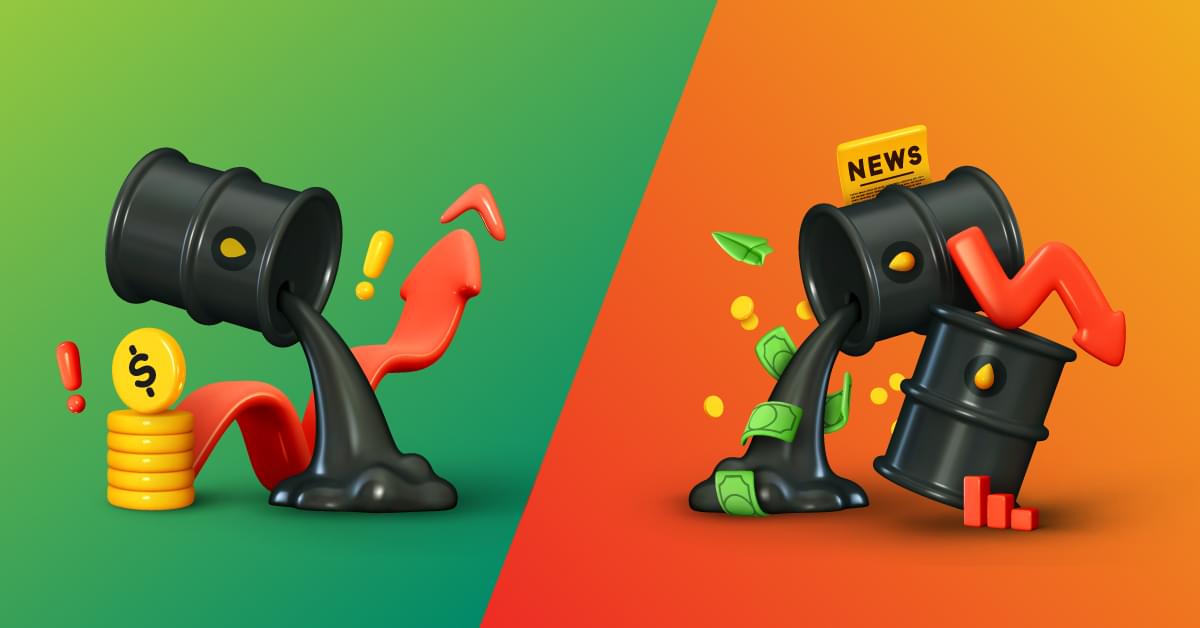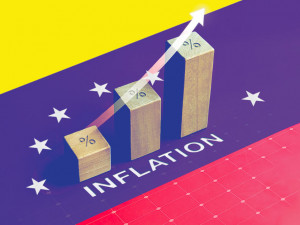
A petrostate is a country which heavily relies on the export of oil or natural gas. The economies of these nations will be almost entirely dependent on oil, which means that any fluctuations in oil prices will cause significant economic shockwaves.
The word petrostate comes from combining ‘petroleum’ and ‘state’.
Petrostate is considered by some definitions to be derogatory, as it negatively describes a country's dependence on oil, and the consequences this often has on its population. It also refers to the fact that, in many cases, petrostates carry a lot of corruption and the mishandling of assets.

Which countries are petrostates?
Whether a country is a petrostate or not is subjective, but generally speaking, any country with a high amount of its GDP and product exports based on oil is considered to be a petrostate.
Some of the countries which rely the most on oil are:
(25% GDP)

(28.9% GDP)

(17% GDP)

(18% GDP)

(17% GDP)

(60% GDP)

(26.2% GDP)

(60% GDP)

(17% GDP)

(46% GDP)

(15.67% GDP)

(25% GDP)

For context, the world average GDP reliance on oil according to The Global Economy is 2.69%.
Some petrostates are in more extreme situations than others. For example, while many cite Russia as being a petrostate, due to 17% of its GDP being based on oil, Russia has diversification in other assets and more global power. It can survive economic movements of the commodity and pivot to different assets more easily. A country such as Venezuela has a reliance on oil that is far more significant and harder to break.

Venezuela as a petrostate
Venezuela is a clear example of a petrostate, and the dangers which come with being one. The country is currently going through an economic crisis mainly due to its overwhelming reliance on oil.
Despite fears that Venezuela was becoming too dependent on oil profits, Hugo Chávez, who was elected in 1999, increased the dependence on oil, pushing exports from being 80% oil to 95% by the end of his term in 2013.
Venezuela is currently in a state of total economic collapse, as this reliance on oil has strangled the country’s economic growth in other areas, and meant that a drop in the price of oil, as seen in 2010, causes unparalleled shockwaves to the economy.
This lack of diversification is what makes a country vulnerable, and also invites a great amount of power to fall into the hands of a select few, which in turn can lead to corruption.
How are petrostates formed?
An abundance of oil is normally the basis of a petrostate. Venezuela, for example, has the largest oil reserves in the world, holding approximately 18% of the world’s share, followed by Saudi Arabia at around 16%.
But this isn’t the only factor, as Canada and the United States also hold a large amount of oil, and yet have not fallen into the trap of becoming a petrostate. Geopolitical pressures are often at the heart of it. Europe, China and the United States are leagues ahead of the rest of the world in terms of oil imports, demonstrating who is pushing the demand for oil. The fact that all oil is held in dollars, known as petrodollars, is another indicator of the USA’s dominance over the oil market.
Petrostates are formed under this pressure. Poorer countries such as Libya and Chad often need to rely on the oil market to stay afloat, and are subject to external pressure to sell oil, lest they allow foreign intervention.
Dutch Disease, where a nation can suffer from a new discovery of a resource, is an affliction suffered by many petrostates, causing them to neglect other areas of their economy. It often goes hand-in-hand with something called a ‘resource curse’.

What is a resource curse?
A resource curse is an economic phenomenon which has shown that often an abundance of a natural resource will hinder economic development. This is because the drive to capitalise on such a valuable resource leads to external influences, internal corruption, and political instability.
Petrostates are often victims of a resource curse, as too much of the country’s capital and workforce is pushed into a single commodity, which can then be difficult to reverse.
Economists have noted several correlations between a resource curse and authoritarian regimes, corruption and conflict. Combined with the pressure put on these countries by Europe, USA and China, the curse is often exacerbated, as there is no clear way to take steps towards diversification.
Saudi Arabia is an example of this pressure into becoming a petrostate. The USA struck a specific deal (involving up to $2bn worth of military contracts) in 1975 to ensure that oil would be sold in dollars, and that OPEC would follow. Saudi Arabia was therefore signed into an agreement that they would supply oil, and thus resulting in their heavy dependence.
The huge surplus of petrodollars also means that countries are slowly cornered into the oil market. Petrodollar recycling offers attractive benefits, and combined with the World Bank and IMF’s loans, countries become increasingly dependent on the dollar, the US, and therefore the oil market.
Steps for the future
Many petrostates are looking for ways they can diversify their economies moving forward – particularly as oil is under scrutiny for being harmful to the planet, and may not be as valuable in the decades to come.
For example, Iran has announced a five-year plan to further diversify their economy after stagnation from 2019 to 2020. As described by a report from the World Bank, “the large contraction in oil exports placed significant pressure on government finances and drove inflation to over 40% for four consecutive years. Sustained high inflation led to a substantial reduction in households’ purchasing power. At the same time, job creation was insufficient to absorb the large pool of young and educated entrants to the labor market”. Iran is trying to avoid repeating an economic shockwave such as this one.
Some countries such as Libya aren’t fortunate enough to be in a position to make a change. In September 2023, Libya was devastated by Storm Daniel, which severely wounded its economy, and dashed any immediate chances of moving away from its oil dependence. Due to the ongoing political turmoil, oil production was disrupted in 2022, causing an economic contraction of around 1.2% according to the World Bank.
While petrostates can make generous profits from their oil, they are generally fragile, and their fragility is exposed in more economically and politically volatile periods. Most petrostates are making steps towards a diversified economy to build stability and enrich their economy, but this comes with enormous challenges.
For more currency news and insight into the ever-changing world of currency, make sure to stay up to date with our Expert Analysis, as well as our Market Commentary.
Caleb Hinton
Caleb is a writer specialising in financial copy. He has a background in copywriting, banking, digital wallets, and SEO – and enjoys writing in his spare time too, as well as language learning, chess and investing.



